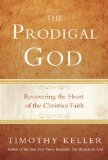 Calvinism seems to spread by fives: five points, five solas, and I bet we could think of other groups of five. Five Reformation countries (Germany, France, Switzerland, The Netherlands, England). Five key Reformers (Luther, Calvin, Zwingli, Huss, Wycliffe). Okay, I know Huss and Wycliffe came earlier….
Calvinism seems to spread by fives: five points, five solas, and I bet we could think of other groups of five. Five Reformation countries (Germany, France, Switzerland, The Netherlands, England). Five key Reformers (Luther, Calvin, Zwingli, Huss, Wycliffe). Okay, I know Huss and Wycliffe came earlier….
As most good Calvinists, I know my fives. My TULIP and my Solas. Or do I? I’m starting to read a new book by Joel Beeke entitled Living for God’s Glory: An Introduction to Calvinism. I should mention that my copy is a review copy provided by Reformation Trust Publishing. (Click here for details on how to blog your way to a free Reformation Trust book).
As Beeke works through the history of Calvinism, I’ve learned quite a bit: even though I’m a Calvinist blogger! I learned that the five solas are best understood in light of their Roman Catholic counterparts, and that the five points of Calvinism were actually four. The points were the Synod of Dort’s response to 5 Arminian points, and were actually given in 4 groupings, with 2 of the points treated under one heading (since they were inseparably joined in the minds of the Calvinists).
To help all of you learn your fives, let me provide some excerpts from Beeke’s book that will explain more about these two groups of Calvinist High Fives.
The Protestant response to Roman Catholic abuses gradually settled into
five Reformation watchwords or battle cries, centered on the Latin word solus,
meaning “alone.” These battle cries, expounded in chapter 10, served to contrast
Protestant teaching with Roman Catholic tenets as follows:
| Protestant |
Roman Catholic |
| Scripture alone (sola Scriptura) |
Scripture and tradition |
| Faith alone (sola fide) |
Faith and works |
| Grace alone (sola gratia) |
Grace and merit |
| Christ alone (solus Christus) |
Christ, Mary, and intercession of saints |
| Glory to God alone (soli Deo gloria) |
God, saints, and church hierarchy |
[from Chapter 1: Calvinism in History: The Origins of Calvinism, pg. 5.]
Though these points do not represent all of Calvinism and are better regarded as Calvinism’s five answers to the five errors of Arminianism, they certainly lie at the heart of the Reformed faith, for they flow out of the principle of absolute divine sovereignty in the salvation of sinners. They may be summarized as follows:
1. Unconditional election and saving faith are sovereign gifts of God.
2. While the death of Christ is sufficient to expiate the sins of the whole world, its saving efficacy is limited to the elect.
3–4. All people are so totally depraved and corrupted by sin that they cannot exercise free will toward, or effect any part of, salvation. In sovereign grace, God irresistibly calls and regenerates the elect to newness of life.
5. God graciously preserves the redeemed so that they persevere until the end, even though they may be troubled by many infirmities as they seek to make their calling and election sure.
Although the canons have only four sections, we speak of five points or heads of doctrine because the canons were structured to correspond with the five articles of the 1610 Remonstrance. The third and fourth sections were combined into one because the Dortian divines considered them to be inseparable and hence designed them as “Head of Doctrine III/IV”.
[from Chapter 2: Calvinism in History: Confessing the Faith, pg. 25-26]
Like this:
Like Loading...

 Calvinism seems to spread by fives: five points, five solas, and I bet we could think of other groups of five. Five Reformation countries (Germany, France, Switzerland, The Netherlands, England). Five key Reformers (Luther, Calvin, Zwingli, Huss, Wycliffe). Okay, I know Huss and Wycliffe came earlier….
Calvinism seems to spread by fives: five points, five solas, and I bet we could think of other groups of five. Five Reformation countries (Germany, France, Switzerland, The Netherlands, England). Five key Reformers (Luther, Calvin, Zwingli, Huss, Wycliffe). Okay, I know Huss and Wycliffe came earlier….
